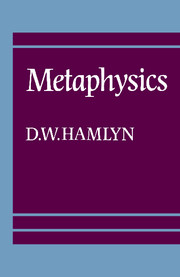Summary
What there is
If someone raises the question ‘What exists?’ or ‘What is there?’, it may be supposed that the most direct way of answering the question is to give a list of things – people, trees, animals, houses, etc. Any such answer, however, presupposes some system of classification into kinds of things. If it is thought that that conclusion can be avoided by simply listing particular things, perhaps by name, the questions still remain of what counts as a particular thing and how we are to identify particular things. The answers to those questions bring in issues about the criteria of identity for the kind of thing in question. Hence the reference to kinds of thing seems unavoidable. It follows in turn that the question ‘What exists?’ must, either directly or indirectly, involve also questions about the kinds of thing that exist.
It is clear that some questions about the kinds of thing that exist are questions which should properly be addressed to particular kinds of specialist, e.g. questions about the existence of quasars, quarks, chalones, abominable snowmen, conditioned responses or democratic governments. It is not clear that such questions are appropriately addressed to philosophers, although philosophers have had things to say about some of these, if only in a negative way to the effect that there cannot be things of such and such a kind because there is an incoherence in the concept involved.
- Type
- Chapter
- Information
- Metaphysics , pp. 34 - 59Publisher: Cambridge University PressPrint publication year: 1984
- 1
- Cited by



